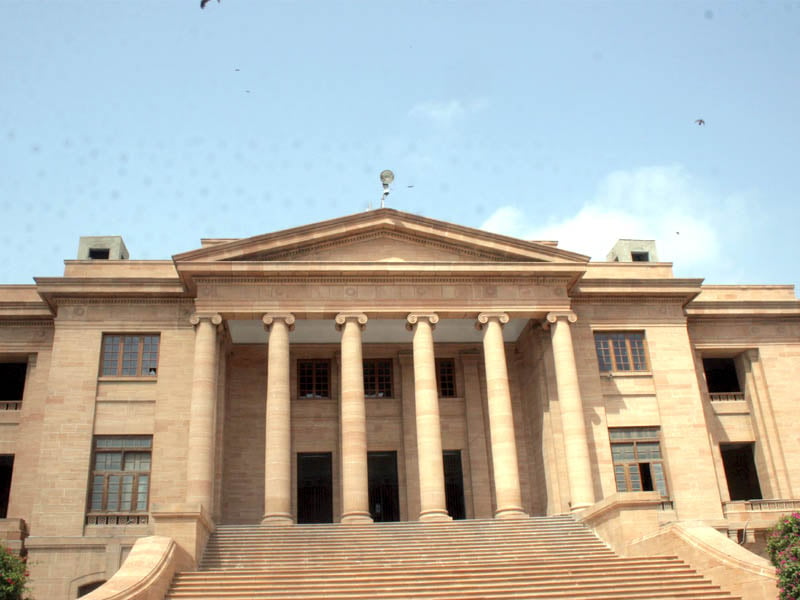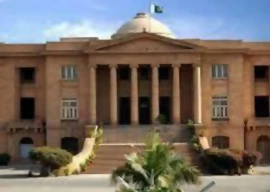
Barrister Zamir Ghumro made this argument before a division bench, headed by Justice Ahmed Ali M Sheikh, during the hearing of a petition challenging the provisions of the NAB Ordinance 1999.
The Shaheed Benazirabad Division commissioner, Ghulam Mustafa Phul, had approached the SHC, seeking a pre-arrest bail in connection with an inquiry into an alleged land scam initiated against him by the National Accountability Bureau (NAB) Sindh.

During Monday's proceedings, Barrister Ghumro argued that the NAB Ordinance was enacted after the proclamation of state of emergency by the then president, General Pervez Musharraf, in the wake of the 1999 coup in the country.
"During the proclamation of the state of emergency, this law was applicable to the federal capital and the provinces," he said. "Within six months of the lifting of the state of emergency, the NAB Ordinance ceased to exist in terms of Article 232 of the Constitution," he argued.
He argued that the parliament can pass a legislation on provincial subjects in only two situations.
First, the parliament can make a law on any provincial subject when the provincial assembly passes a resolution in favour of the law and authorises the parliament to do so, in terms of Article 144 of the Constitution. Even in that case, the provincial assembly can repeal the laws made by the parliament, he clarified.
Secondly, he argued that the parliament can legislate on any provincial subject when a state of emergency is declared in any province in terms of Article 232.
The lawyer recalled that during the first 50 years - from 1947 to 1997 - the country had never had any uniform accountability law, as the federal and provincial governments had their own anti-corruption regimes.
This division was made through the Estisab Act 1997 and NAB Ordinance 1999.
It was argued that the NAB Ordinance had ceased to have an effect in April 2002 after the state of emergency was lifted. Therefore, its continuation is against the Constitution and an invasion on the provincial autonomy.
The petitioner belongs to the provincial civil service and his terms and conditions are determined by the Sindh Civil Servants Act 1973. The federal servants are governed by the federal laws.
Due to the paucity of time, the bench adjourned the hearing till November 2 when the petitioner's lawyer will continue arguments.
Published in The Express Tribune, October 27th, 2015.





1732697578-0/Untitled-design-(5)1732697578-0-270x192.webp)











COMMENTS
Comments are moderated and generally will be posted if they are on-topic and not abusive.
For more information, please see our Comments FAQ